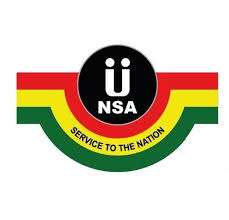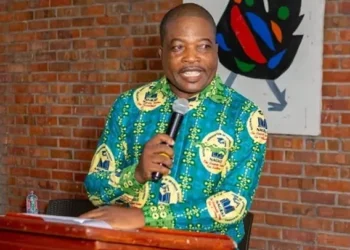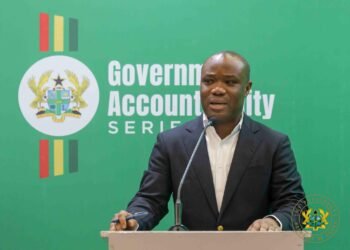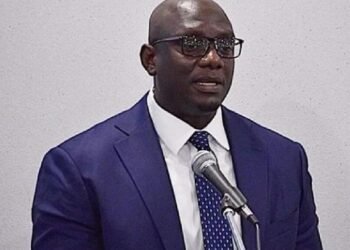The National Service Authority has become the latest battleground in Ghana’s ongoing struggle between professional integrity and partisan politics.
In a bold and strongly worded statement, the staff of the National Service Authority (NSA) have publicly condemned the growing interference of political party foot soldiers in the operations of the institution—warning that such intrusion is an affront to democratic principles and institutional independence.
Signed by Ayirebi Adubofour, Chairman of the staff body, the statement minced no words: “This phenomenon undermines the principle of democracy, erodes public trust, and compromises the integrity of our institutions.”
The statement was triggered by recent attempts by party activists to exert undue influence over internal operations, including transfers and recruitment, especially within the Western Region.
Staff members, clearly alarmed by this trend, issued a rallying call for both youth and political leaders to step back and allow the National Service Authority to function according to law, not party loyalty.
“We wish to reiterate to the general public that the National Service Authority is a public institution under the Public Services Commission.”
National Service Authority (NSA)
The declaration comes at a time when the politicization of state institutions is reaching troubling levels.
What should be a neutral space for national development and youth service is being dragged into partisan schemes—and those on the inside are beginning to speak out.
In defending their mandate, the staff stressed that all human resource decisions within the NSA—be it recruitment or internal transfers, are strictly regulated.
Accordingly, the staff demanded that merit, law, and professionalism—not political allegiances—guide decisions within the Authority.

“Our recruitments and transfers are done in line with our approved Scheme of Service and in accordance with the Public Services Commission Act and the provisions of the Constitution under Article 195.”
National Service Authority (NSA)
This message is more than just a bureaucratic clarification—it’s a rejection of the toxic belief that party affiliation should serve as a passport to public sector advantage.
They also made a direct appeal to young people, particularly in the Western Region, urging them to show restraint and resist becoming pawns in political schemes. “…allow the Management of the Authority to function as defined by the laws and status.”
Staff Urges Protection of Institutions
In the middle of the statement lies a deeper warning to those in power: Ghana’s institutions must be protected from partisan capture.
Staff not only appealed to management to uphold its responsibilities, but they also called on the government itself to ensure that agencies like the NSA remain neutral to politics.

“We are equally calling on Management to adhere to the guiding principles and protect the integrity of the Authority…We call on the government to ensure that state institutions like the National Service Authority be protected from political interference.”
National Service Authority (NSA)
This marks a rare but significant moment in Ghana’s public sector—where employees of a key state agency are not simply defending their jobs but the very principle of nonpartisan service delivery.
It is a clear sign that the public service is awakening to the corrosive effects of political overreach.

“We want to advise the political parties to refrain from using the National Service Authority as a tool for advancing party interests and to respect the independence of the Authority.”
National Service Authority (NSA)
Their insistence is grounded in law. The Authority’s activities are governed by the National Service Authority Act 2024 (Act 1119), the Public Services Commission Act 1994 (Act 482), and Article 195 of Ghana’s Constitution.
These are not mere procedural guidelines—they are constitutional guardrails against partisan overreach.
“The National Service Authority internal transfers and recruitments are not at the mercy of any other group or individual’s call,” the statement concluded. In short, the Authority is not—and must never become—an extension of any political party’s machinery.
This is not just about the National Service Authority. It’s about the future of public service in Ghana.
If partisan interference continues unchecked, no institution will be spared the rot that comes from unmerited appointments, demoralized professionals, and public cynicism. What the NSA staff have done is significant—they’ve taken a stand.
The question now is whether the government and political actors will listen. The legitimacy of Ghana’s democratic experiment depends on whether its institutions are run for the public good or for partisan gain. The time to choose is now.























